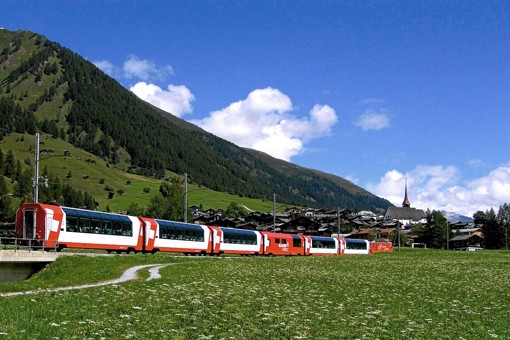 Whether you want to zip over to Paris for the weekend or take a grand tour of the Alps, these tips on how to travel by train around Europe will help you save money and maximise holiday time.
Whether you want to zip over to Paris for the weekend or take a grand tour of the Alps, these tips on how to travel by train around Europe will help you save money and maximise holiday time.Consider your interests, time and budget. Even a weekend is enough to take a high-speed train from London to Paris or from Brussels to Amsterdam. Some of Europe's greatest rail journeys are doable in a day, like Inverness to Thurso in the Scottish Highlands and the Alpine Glacier Express from St Moritz to Zermatt. With more time you can plan ambitious itineraries like Paris to Istanbul or Prague to Vienna.
Booking your ticket a month ahead should guarantee you a cheaper seat. Under 26-year-olds and over 60-year-olds are often entitled to discounted fares. High-speed trains are generally pricier than regional trains, so go slow to cut costs.
A rail pass could save you time and money if you're making several long-distance train journeys, but do the sums first. When planning your route, check that the pass covers the countries you intend to visit and compare its cost with point-to-point fares online. Two major passes are InterRail and Eurail, for European and non-European residents respectively. Choose between 'flexi' passes, offering travel on certain days within a month, and 'continuous' passes for consecutive journeys. For single-country travel national rail passes are often a better deal, like the multi-day Swiss Pass covering public transport and giving reductions on cable cars.
It's worth paying a small fee of around €3 to reserve a seat, especially if you're travelling in second-class at peak times when space is limited. Rail pass holders might have to pay a supplement to travel on certain high-speed trains like the TGV in France. Eurostar tickets include seat reservations.
Avoid queuing at stations by booking your ticket ahead. Allow ample time to change trains and platforms, and for check-in procedures on Eurostar trains. Save time by planning your route in advance with the informative Thomas Cook European Timetable or the comprehensive Deutsche Bahn (German Rail) website.
Overnight trains allow you to cover greater distances and increase sightseeing time. Plus there is something romantic about bedding down in Nice and waking up in Rome. One- to four-bed sleeping cars have hotel-style comforts with bathrooms, room service and proper beds, while couchettes have three to six bunk beds.
You can take your bike on trains with dedicated bicycle compartments, but you might have to pay a small supplement or travel at off-peak times.
While there are no airline-style restrictions on luggage weight, some train companies like Eurostar limit the number of bags you can take onboard. Remember that you'll have to carry whatever you take, possibly up steps when changing platforms. Ease the load by sending registered baggage or using left luggage facilities at stations.
Second-class train travel is of a high standard in Europe, though you might need to reserve or arrive early to secure a seat. You'll pay around an additional 50% to upgrade to first class, which gets you more legroom, plusher seats and sometimes perks like complimentary newspapers, soft drinks and meals.
Taking the train is a kid-friendly way to travel in Europe. Modern high-speed trains have space for tots to play and some, like Eurostar and TGV, feature dedicated family carriages with board-game tables and baby-changing facilities. Toddlers often travel free provided they sit on a parent's lap and children from six to fifteen years of age normally pay half fare.